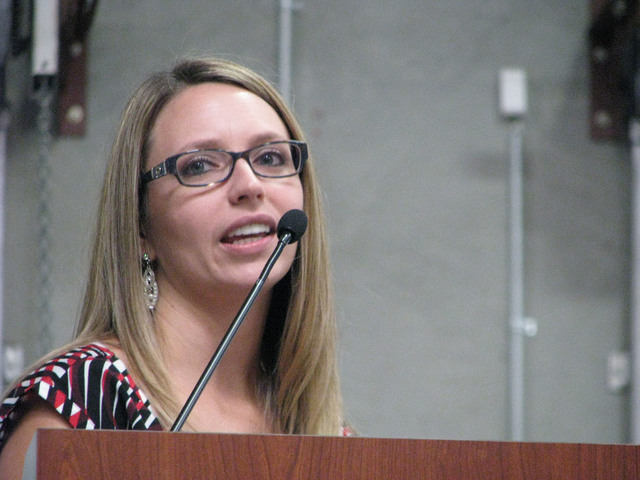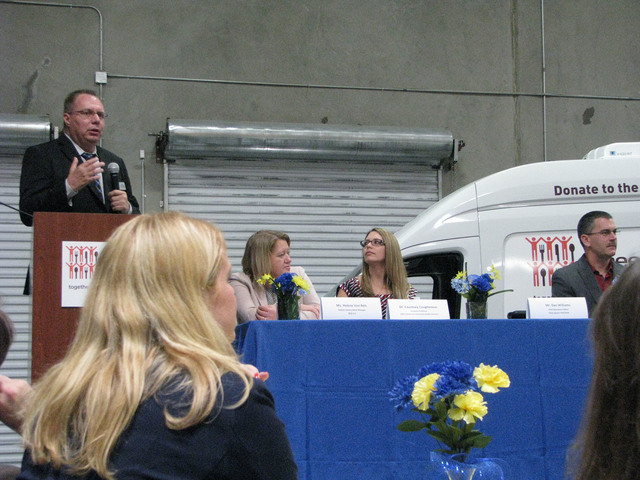Symposium between Las Vegas nonprofit, Ikea seeks to create sustainable food options
Ikea hit the ground running when it opened in Las Vegas on May 18. By breakfast the day after the opening, representatives were already partnered with Three Square food bank and speaking at a Sustainability Symposium at the local charity’s offices at 4190 N. Pecos Road.
The hourlong event featured several Ikea staff members and Sustainability experts discussing the issue of hunger and how to avoid wasting food and ensure that food is available to everyone. The speakers contended that the problem isn’t that the world has trouble producing food, but that we have problems not wasting it.
Professor Courtney Coughenour of UNLV’s School of Community Health noted that the “sell by, best by and consumed by” dates printed on food can be confusing to consumers.
“On the retail level, food is discarded because it isn’t attractive such as being bruised or misshapen,” Coughenour said. “Food that is completely edible is being wasted. In fact, 31 percent of the food in the U.S. is wasted, and that’s just at the retail and consumer level.”
She added that those numbers don’t include things that happen during the harvest and that the waste amounted to 133 billion pounds of food and that nationally our waste numbers are up 50 percent over the last 40 years.
“Sustainability is very important to Sweden, but it hasn’t always been that way,” said Goran Lithell, deputy chief of mission at the Embassy of Sweden in Washington, D.C. “After hosting the first U.N. Conference on the Human Environment in 1972, Sweden started to make some tough decisions to improve our environment.”
For Ikea and Sweden in general, the issue is viewed as part of a gestalt, with sustainability in all aspects of life affecting sustainability of all other aspects of life. Wasted food means more trucks driving to deliver more food and take wasted food to a landfill, which means greater pollution. Food is a major piece of the puzzle because hungry people can’t operate to their fullest potential.
“Families that are food-insecure are stressed because things like having to worry about paying the rent versus buying food is really stressful,” Coughenour said. “Children who are food-insecure don’t retain as much information and do poorly academically and are prone to more behavioral problems.”
She added that nearly 15 percent of the country is food-insecure, which is a more complex concept than simply being hungry. The food-insecure end up eating cheaper, fatty foods that can lead to obesity and a wide range of medical and psychological issues.
Ikea Deputy Country Retail Manager Helen Von Reis explained that the company’s founder, Ingvar Kamprad, believes that people should be happy shopping.
“He said that we can’t have people come and shop on an empty stomach,” Von Reis said. “They need food. They need good food, and they need affordable food.”
The conference didn’t offer any easy solutions because the participants don’t believe there are any easy solutions — just complex ones that involve diligence and hard work. The work includes Three Square, which, among other things, rescues excess and unattractive food and gets it to over 150 distribution partners across the valley to help the food-insecure.
To reach East Valley View reporter F. Andrew Taylor, email ataylor@viewnews.com or call 702-380-4532.


















